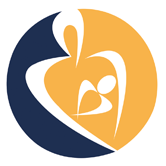
Your President’s “Swan Song”
Dear members and friends of the International Society for Research on Human Milk and Lactation (ISRHML),
This is my last message to you in my role as president of ISRHML. I have now handed over this role to my close friend Dan Sellen who started his term as our next president on April 1, 2022. I do so in a very happy mood, because our society is in great shape. We are successfully pursuing our mission to drive and share the highest quality research in human milk and lactation for advancing knowledge and improve human health and wellbeing. One indicator of the society’s health is the steady growth of our membership, reflecting the attraction of our lively association, the growing interest in human milk and lactation research, and the activities of our membership committee.
ISRHML Members
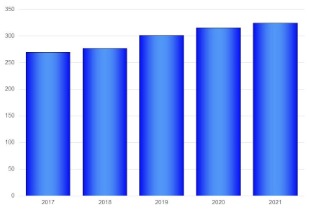
Countries with several ISRHML Members
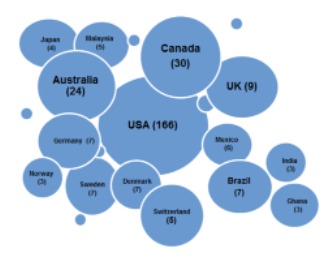
We are a truly international society, with members from 42 countries from all five continents.
Our financial situation is healthy, not the least due to the financial surplus of about 50 000 US Dollars gained from our 20th. Conference in 2021, which was attended by a record number of more than 400 delegates. Thanks again to Magnus Domellöf for his outstanding contribution, it has been a great joy to work closely with you here!
It also makes me very happy that we achieved the continuation and expansion of our highly successful Trainee Expansion Grant Support Programme for another five years, in close collaboration with the Family Larsson Rosenquist Foundation (FLRF). The first award winners of the new cycle have been chosen from the applications submitted by October 1, 2021. Don’t miss the next deadline coming up on October 1, 2022! Kirsi Järvinen-Seppo, Rochester, USA, has done an excellent job as the Scientific Review Board chair. As she is handing over the task, I wish to express my sincere gratitude to her on behalf of the society for many years of dedicated and outstanding work. The Executive Committee unanimously agreed to appoint Maria-Carmen Collado-Amores, Valencia, Spain as her successor in this important role.
Our regional Webinars have become a very popular feature of our society, with 10 Webinars in 2020 and 22 Webinars in 2021, in addition to a further 6 Trainee Interest Group Mentorship Webinars in 2020 & 2021. I very much hope we can continue this frequent exchange of research findings in between our international conferences, and I thank all webinar coordinators for making it happen.
On February 8, 2022, Dan Sellen and I had a great conversation with Saray Hill and Sara Lake, leaders of the International Board of Lactation Consultant Examiners. It was good to hear that both organisations appreciate each other’s work and are keen to collaborate closely with each other, and we agreed to keep inviting each other to our meetings.
We held elections at the beginning of this year. Sincere congratulation and all the best of luck to our elected treasurer Diane Spatz, Philadelphia, USA, our next president elect Carol Wagner, Charleston, USA, and our new councillors Richmond Nii Okai Aryeetey, Accra, Ghana, Sonia Hernández-Cordero, Cuernavaca, México, Katsumi Mizuno, Tokyo, Japan, and Alecia-Jane Twigger, Cambridge, UK. It is great to see that once again we will have a very international Executive Committee, with representation of a wide variety of professions and research interests. Thanks also to all those who agreed to stand as candidates but were not elected at this time. Your offer to support the work of the society is greatly appreciated, and I hope you will actively contribute in other roles or consider standing again at the next election! I should also like to express my sincere thanks to our outgoing councillors, first and foremost to Nancy Hurst who has been a fantastic treasurer and chair of the membership committee and simply a wonderful person to closely work with, and to Maria-Carmen Collado-Amores, Sharon Perella, and Wei Wei Pang. Thank you all for contributing so actively to ISRHML, and please continue to do so!
What lies ahead?
A major project for ISRHML and its Executive Committee will be the implementation of the Strategy Plan and the related actions developed so well by Sharon Donovan and her team. The Strategy Plan gives us great guidance on where to focus in moving the society forward to optimally achieving our mission and to serving our membership even better. Among the topics to be followed up further is the question whether we wish to develop more regional activities.
And of course, we all cannot wait to meet again face to face after the long interval induced by the Covid-19 pandemic. Hence we are very much looking forward to our upcoming 21st. ISRHML conference on October 23-28, 2022, at Panama City, an amazing location with endless attractions. Please block your calendars and plan to come. Dan Sellen and the organizing committee are preparing a wonderful programme not to be missed. Better get your abstracts prepared already now!
Last but not least, I wish to thank you all for giving me the opportunity, privilege and pleasure to serve as your president for the last two years. It has been a great experience, with the best part of it obviously being the close interaction with outstanding colleagues and friends. I cannot wait to see many of you in Panama City in October!
Sincerely yours,
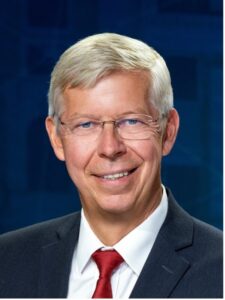

Berthold Koletzko
Else Kröner Senior Professor of Paediatrics, LMU University of Munich
ISRHML Immediate Past President
ISRHML Elects New Members to Serve on Leadership Committees
Congratulations to the newly elected members of the ISRHML’s Executive Committee and to the Trainee Interest Group Governing Committee. Please join us in congratulating them all! Click here to meet the new ISRHML EC members and click here to meet the new TIG Governing Committee members.
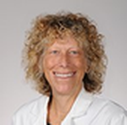
President Elect: Carol Wagner (USA)

Treasurer: Diane Spatz (USA)
Councillors:
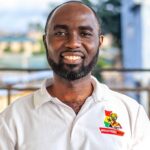
Richmond Aryeetey (Ghana)
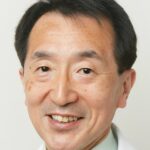
Katsumi Mizuno (Japan)
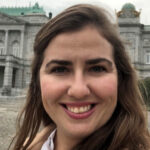
Alecia-Jane Twigger (UK)
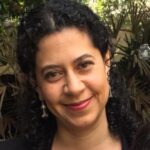
Sonia Hernández-Cordero (Mexico)
Thank you to Sharon Perella, Wei Wei Peng, and Marie Carmen Collado, and Diane Spatz for their service on the EC committee for the past 3 years.
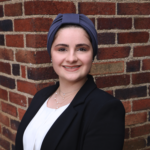
President-Elect: Noura El Habbal (University of Michigan)
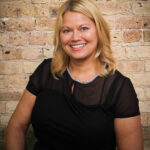
Secretary: Kristin Elgersma (University of Minnesota)
TIG Professional Development Coordinator:

Miranda Loutet (University of Toronto)
Thank you to Alexandra Gogel (TIG secretary; University of Idaho) and Sarah Turner (TIG Trainee Mentorship Series Coordinator; University of Manitoba) who rotated off of the committee on March 31, 2022 for their service over the past 2 years!

We are looking for creative works that focus on human milk and/or lactation and/or breastfeeding to use and highlight in future newsletters. In addition to studying human milk and lactation, many of you also draw, paint, and/or write. We invite you to submit your photos, artwork, and writings to news@isrhml.com. By submitting your work, you are giving ISRHML permission to utilize them in the newsletter in either print and/or electronic format. Thank you for sharing your photos and artwork with your professional committee! If you have any questions, you may also reach out to Janet Williams (janetw@uidaho.edu).
Transition from Trainee to Faculty: How to Start Up a Lab
by Carrie-Ellen Briere
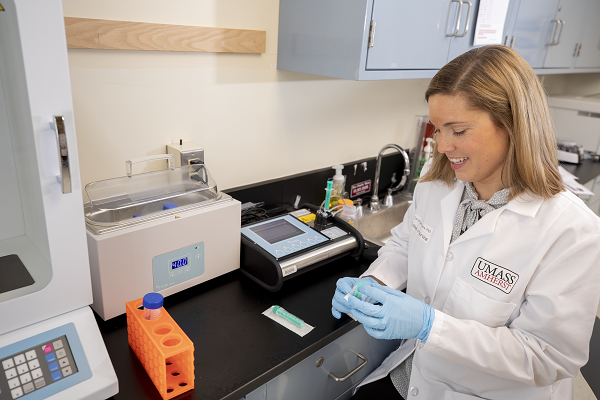
If you are a student or a scientist who mentors students… you are not going to want to miss this story or considerations for the transition to a faculty position.
One day, six years ago, I was working in a lab as a postdoctoral fellow bumping arms (and chairs) with my fellow students and colleagues wishing for my own pipette and tiny desk space. Next thing I knew, I was sitting in formal interviews with heads of universities asking me how much space I needed to do my research as a faculty member. At the time, even a closet seemed like an upgrade and I was entirely overwhelmed with the whole process.
-At the time (and honestly, still today), I considered myself a “baby in the lab”, as my experience with laboratory research only began during my postdoctoral fellowship. I am a neonatal nurse and not until the end of my PhD discovered that as a nurse I DO have a place in the laboratory, and as such, it sent my entire career trajectory down a new path. So, you can imagine, as I interviewed for faculty positions, I was still new to the concept of being in a lab, let alone RUNNING a lab. Imposter syndrome, along with simple naivety were major factors in how I negotiated my start-up package and laboratory space.
Today, I am in the process of an extensive laboratory renovation and I want to share what I have learned as I transition into my faculty position, and things I wish someone had told me earlier with considerations for both students and mentors.
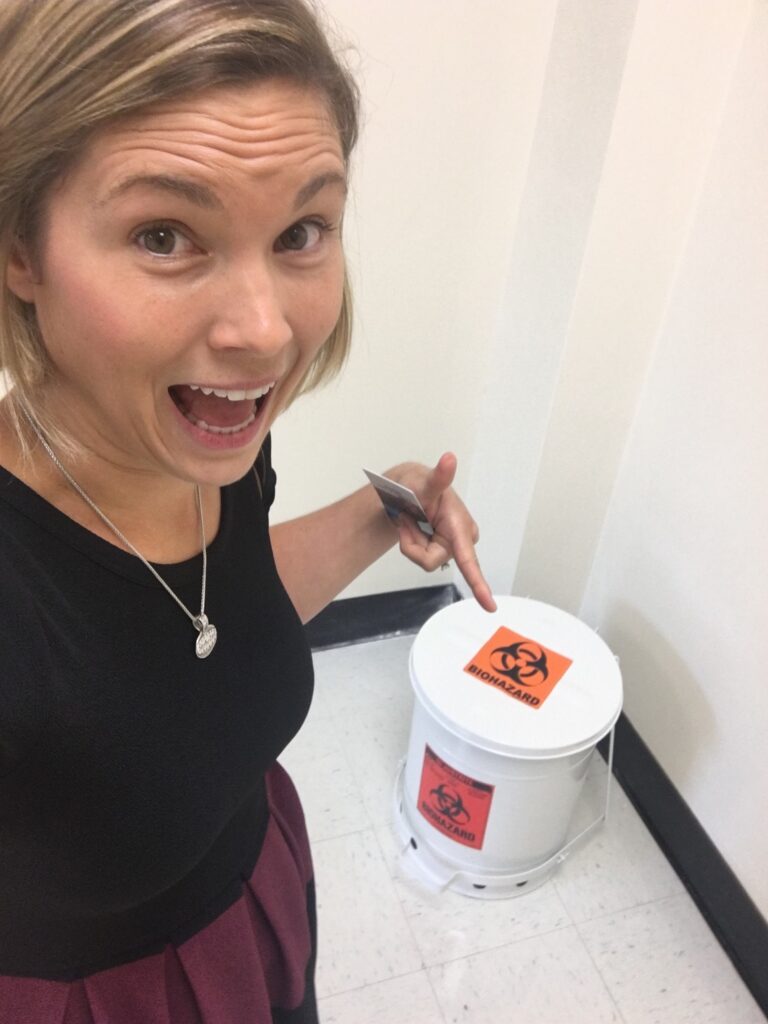
1)Laboratory Space: Think big.
Student: You have probably heard this from your mentors many times, but it cannot be stressed enough… and I am serious – imagine yourself as a super successful faculty member in 10 years – HOW did you get there? What does your lab look like? What equipment do you have? Who is working with you? Take the time to envision this future and what space you need to accomplish this. For me, this was SO hard to do. I felt awkward asking for a hypothetical space for hypothetical students and postdocs – my advice? Talk to your mentors and create your “dream” laboratory team – now think about how your lab space will accommodate your team and negotiate based on this.
Mentor: Recognize that even your most experienced PhD students and postdoctoral fellows may harbor some anxiety about the faculty interview process. Mentor your students to imagine where they want to be and what they need to support them throughout their time working with you.
2)Laboratory Personnel: Set Yourself up for Success.
Student: My biggest regret about my first years as faculty is how much TIME it took to get everything up and running. And then once it was all running, I found that I had no money to hire someone to help, so I was doing it all – ordering equipment and supplies, setting up the entire laboratory space, recruiting families, driving to pick-up samples, conducting interviews, setting up experiments, analyzing samples, etc. … it was not a good use of my time and I know these 3 years have impacted my productivity even today. Think about your research over the next 5 years and how it will get done – do you need help from undergraduates? Graduate students? Post docs? Staff members? It might be hard to envision yourself as the leader, but you need to create a team and it is important to put these positions into your negotiations and justification for why you need this for success.
Mentors: Help students consider students and staff who they will want to work with. Help them learn to delegate and think creatively about getting their work done. Encourage them to talk to and visit other laboratory teams for exposure to different team approaches.
In addition to space and personnel needs, as new faculty you also need to consider the costs of equipment, supplies, facility fees, participant incentives, travel reimbursements, conference fees, publishing fees, and the list goes on! Consider asking a mentor or colleague who has recently been through the process to share their experience or take a look at your negotiation documents. For me, a former colleague shared their excel spreadsheet breakdown of anticipated costs that I used as a template to guide my negotiations.
While you likely will not get everything you ask for, it is important to do the work to truly understand your “needs” to be successful and the “wants” which could help your success—and then to know where you are willing to negotiate and where you are not. If you are currently in this process or will be soon – I wish you the best of luck in the entire process!
TIGer’s Review of “Breast/Chestfeeding without Nursing"
by LC Von Esebeck

As a long time fan of Dr. Fiona Jardine’s advocacy and work, I was energized to review her webinar presentation “Breast/Chestfeeding Without Nursing”. I am a gender queer, Black femme, disabled lactation consultant and doula who spent the last decade pregnant and breastfeeding four children and 15 years practicing as a research and program coordinator in maternal health. These experiences have left me frustrated with how I never saw my own experiences represented in research, clinical trials, or guidelines and policy recommendations for patient care. I am something of a rebel within the International Board Certified Lactation Counselor (IBCLC) community for my extremely loud and proud, informed-consent based stance on all forms of infant feeding, particularly pumping, supplemental nursing system, donor milk, and all other forms of “alternative delivery methods” for human milk feeding. As such, I was relieved that Dr. Jardine presented on a much anticipated, desperately needed academic investigation of exclusive pumping. This is a multifaceted, global issue, affecting infant feeding practices, norms, and needs which Dr. Jardine presented through a lens of equity and compassion.
Here I briefly review key highlights from Dr. Jardine’s webinar which must be considered for future action in exclusive pumping research and care. You can read this review in its entirety on the TIG blog.
The majority of breastfeeding parents do not set intentions to exclusively pump for the majority or entirety of their infant feeding journey. In the past, exclusive pumping was treated as an emergency method of initiating and maintaining breast milk supply until latch is well established and existing issues are resolved. However, what is rarely addressed are the barriers that exist to making long term, direct breastfeeding sustainable (particularly in industrialized countries such as the United States, where both parents work and paid leave is not federally protected nor available, especially to many BIPOC and resource-starved populations), even for parents who do initially latch with ease. Parents were also frustrated and disappointed by the lack of transparency or accurate education (on pumps and regarding pumping), the availability of reliable information, and the great variance within practices and rendered care provided by IBCLCs. Finally, infant feeding advocates and healthcare providers must move past a hierarchical, crisis-oriented or disdainful view of long-term pumping reliance in care plans. Instead, they should embrace a resource oriented, contextually cognizant, holistic, counseling methodology to ensure the improvement of both the education provided to patients and families.
This talk was encouraging in that it highlighted the progress being made to recognize and support every way in which families meet their infant feeding needs and breastfeeding goals during challenging times, and demonstrated that ISRHML members continue to be on the frontline of research and care to improve these concerns. I hope to see this conversation among ISRHML members expand to include: the unexplored differences in electronic pump comparisons and performance; the lack of data on compositional differences of expressed human milk; how to positively promote this knowledge in ways that doesn’t imply formula is superior to expressed/donor milk; and finally, the lack of equity data on differences in exclusive pumper outcomes based on LBTQAI, race/ethnicity, and/or immigration status.

It is our immense pleasure to invite you to join the 21st. conference of the International Society for Research on Human Milk and Lactation! After an extended period during which a small virus forced us to meet online only, we are extremely excited to come together again at a physical meeting to share and discuss the latest research findings in this rapidly moving field of multidisciplinary science. However, we will also capitalize on the learnings during the last couple of years and offer state of the art hybrid access for those who prefer to join the meeting and discussions from home.
TIG President Letter - Milk Minutes Newsletter
Hello ISRHML members! I am pleased to share an update from the Trainee Interest Group (TIG) for this edition of the Milk Minutes newsletter.
I first want to extend my gratitude to our outgoing TIG Governing Committee member, Sarah Turner, for all her hard work in making the Trainee Webinar Series such a success. I am excited to announce that our outgoing TIG Secretary, Alex Gogel, will be serving for another year on the committee as the Trainee Outreach Chair. Thank you both for your efforts and dedication to the TIG over the past 2 years!
As we enter this next term, I am thrilled to welcome our new incoming TIG Governing Committee members, Dr. Kristin Elgersma (TIG Secretary), Miranda Loutet (TIG Professional Development Coordinator), and Dr. Noura El Habbal (TIG President-Elect), who took office on April 1st, 2022. I also want to formally introduce Margaret Butler as the TIG Newsletter & Blog Editor for this next year. I’m looking forward to working alongside each of you! Thank you as well to each of our TIG election candidates for being willing to serve on the TIG Governing Committee – I hope you will consider running again in future elections.
As part of the ISRHML Strategic Planning Survey, our trainees overwhelmingly said they wanted more opportunities to network – and we heard you! The TIG Governing Committee has been working hard to provide more networking events for trainees to meet each other and other ISRHML experts. We recently hosted two virtual networking events, each with multiple event times to accommodate as many time zones as possible. The first event was hosted at the Virtual ISRHML Biennial Conference 2021 where potential Trainee Expansion Program (TEP) hosts and ISRHML leaders were invited to meet with trainees. Thank you to Drs. Lars Bode, Maria Carmen Collado, Thomas Hale, Elizabeth Johnson, Berthold Koletzko, Daniel Sellen, Sarah Taylor, and Janet Williams for taking the time to meet with us! In February, we hosted a second networking event, the TIG Open House, for trainees to meet the current and past TIG Governing Committee members and learn more about getting involved with ISRHML. Thank you to our past TIG Governing Committee members, Drs. Laura Galante, Ezgi Özcan, Sarah Reyes, Melissa Theurich, and Janet Williams for joining us! You can visit the ISRHML website to learn more about the TEP awards and the TIG Governing Committee. Stay tuned for more TIG networking events in the future!
The TIG has continued to host our regular Trainee Webinar Series organized by Sarah Turner and Miranda Loutet. The most recent webinar, “Decolonizing Human Milk Feeding Research and Practice in the United States”, took place in January with Dr. Kimarie Bugg, the President and CEO of Reaching Our Sisters Everywhere (ROSE). If you want to catch up on this webinar, or other past webinars, be sure to visit the members only section of the ISRHML website where you can watch the video recordings (member login required).
Our TIG Social Media & Communications Chair, Nina Juntereal, has also been working hard to highlight #ISRHMLTrainee accomplishments and emerging research on our ISRHML social media platforms. If you have any news you would like ISRHML to share, please let us know! We also follow our trainees’ Google Scholar profiles to help showcase their work. We encourage you to make a Google Scholar profile and let us know, if you haven’t done so already.
If you are interested in getting involved with the TIG, you can fill out this form and one of our TIG Governing Committee members will get in contact with you. Please don’t hesitate to reach out to us at tiggoverningcommittee@gmail.com if you have any questions.
Lastly, don’t forget to renew your membership – it expired on March 31st and we would love for you to continue being a part of the ISRHML community!
Best wishes,
Michelle Asbury
ISRHML TIG President
ISRHML Newsletter | Editorial Board

Janet Williams
University of Idaho
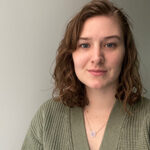
Margaret Butler
Northwestern University

Jimi Francis
UT San Antonio
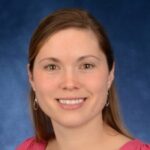
Carrie-Ellen Briere
University of Massachusetts Amherst
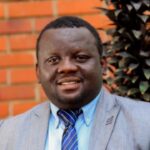
Omobolaji Adewuyi
University of Ibadan, Nigeria
